Environmental Market
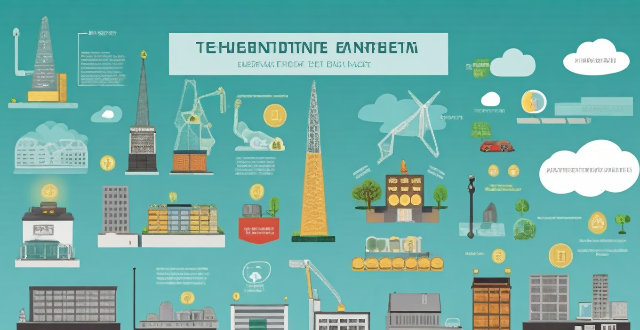
How is renewable energy affecting the traditional energy market ?
Renewable energy sources are having a significant impact on the traditional energy market, affecting pricing, market share, job creation, and environmental concerns. The increased efficiency and reduced installation costs of renewable technologies have made them more competitive with traditional energy sources, leading to declining electricity prices overall. Additionally, the growing demand for renewable energy sources has led to an increase in their market share, particularly for solar and wind power. The transition to renewable energy is also creating new job opportunities across various sectors of the economy, while addressing environmental concerns associated with fossil fuel consumption.

What are the challenges and opportunities for developing countries in the carbon trading market ?
Challenges and opportunities for developing countries in the carbon trading market include lack of infrastructure, legal and regulatory hurdles, market access and information asymmetry, capacity building needs, economic growth and investment, technology transfer and innovation, environmental sustainability, policy influence and leadership.
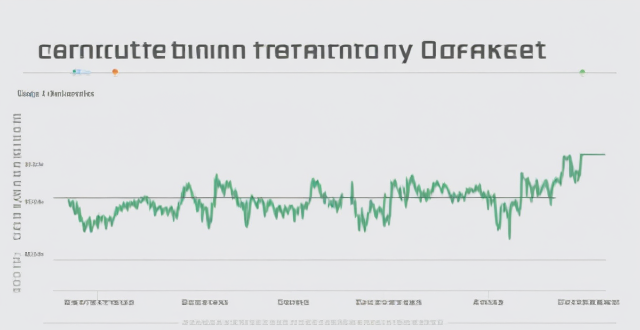
How can I invest in the carbon trading market ?
The carbon trading market offers a lucrative investment opportunity for those interested in environmental sustainability and financial gain. To invest successfully, one should understand the basics of carbon trading, research different carbon markets, choose a broker or exchange, determine an investment strategy, and start trading while managing risk.
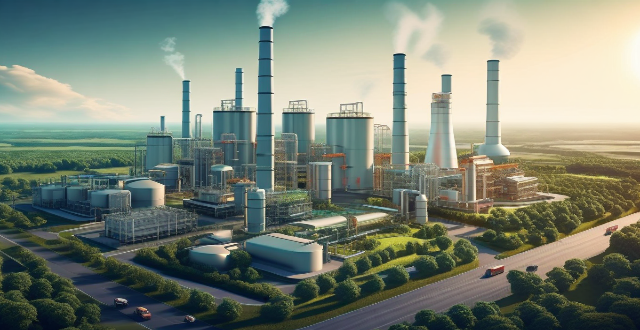
What role does natural gas play in the global energy market ?
Natural gas is a key player in the global energy market due to its environmental advantages, economic benefits, contributions to energy security, technological advancements, and versatile applications across sectors.

What is the carbon trading market ?
The carbon trading market is a financial mechanism that allows for the trading of emissions reductions to meet greenhouse gas emission targets. It is based on cap-and-trade, where a limit is set on total emissions and those who reduce their emissions below the cap can sell their surplus allowances. Key components include carbon credits, emissions caps, trading mechanisms, verification and certification, and regulation and governance. Benefits include cost-effectiveness, flexibility, innovation incentives, and global collaboration. Challenges and criticisms include equity concerns, market inefficiencies, environmental integrity, and political will. The carbon trading market serves as a crucial tool in the fight against climate change but requires ongoing attention and improvement to maximize its effectiveness.

How do political events affect the stock market, and how can they be analyzed ?
This comprehensive analysis explores the impact of political events on the stock market, including economic policies, regulatory changes, international relations, and elections. It also provides strategies for analyzing their potential effects, such as staying informed, diversifying your portfolio, using technical and fundamental analysis, and monitoring sentiment indicators.

What are the risks associated with investing in the carbon trading market ?
The carbon trading market offers lucrative investment opportunities but also carries significant risks, including price volatility, lack of transparency, legal and regulatory changes, and environmental impacts. To mitigate these risks, investors should diversify their portfolios, conduct thorough research, stay updated on regulatory changes, and consider the environmental impact of their investments. By taking these steps, investors can potentially reduce their exposure to risks while still benefiting from the profitability of the carbon trading market.
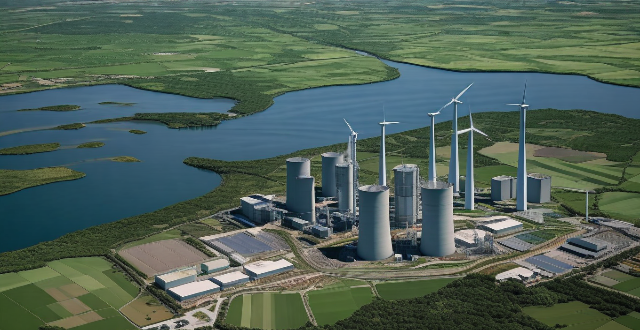
How is the demand for electricity affecting the energy market ?
The demand for electricity is a crucial factor that affects the energy market. As the world becomes more reliant on electricity, the demand for it continues to grow. This increased demand has significant implications for the energy market, including the types of energy sources used, the cost of electricity, and the environmental impact of energy production. The key points include population growth, economic development, technological advancements, diversification of energy sources, investment in infrastructure, cost of electricity, environmental impact, renewable energy sources, energy efficiency, smart grid technology, and electric vehicles. By considering sustainable energy solutions, we can work towards a more sustainable and equitable energy future.

Who are the main participants in the carbon trading market ?
The carbon trading market is a complex ecosystem involving various stakeholders who play crucial roles in reducing greenhouse gas emissions and promoting sustainable development. These participants include governments and regulatory bodies, companies and businesses, investors and financial institutions, project developers and consulting firms, and NGOs and environmental groups. Governments establish the legal framework and policies that govern the market, while companies are required to hold sufficient allowances to cover their emissions or purchase additional allowances if needed. Investors provide liquidity by buying and selling allowances based on their expectations of future price movements. Project developers design and implement projects that generate credits for sale on the carbon market, working closely with governments, companies, and investors. NGOs and environmental groups advocate for stronger climate policies and support initiatives that promote sustainable development.

Are there any drawbacks to implementing environmental subsidy policies ?
This text discusses the potential drawbacks of environmental subsidy policies, including increased costs for consumers, market distortion, administrative challenges, overreliance on subsidies, and unintended negative environmental impacts. It emphasizes the importance of careful consideration and effective strategies to maximize benefits while minimizing drawbacks.

What are the benefits of participating in the carbon trading market ?
Participating in the carbon trading market offers a multitude of benefits, which can be categorized into environmental, economic, and social aspects. Here are some of the key advantages: 1. **Environmental Benefits**: - Reduction in Greenhouse Gas Emissions: The primary goal of carbon trading is to reduce greenhouse gas emissions by creating financial incentives for companies to adopt cleaner technologies and practices. This helps to mitigate climate change and its associated impacts on ecosystems and biodiversity. - Promotion of Renewable Energy Sources: As companies strive to reduce their carbon footprint, they are more likely to invest in renewable energy sources such as solar, wind, and hydroelectric power. This shift towards green energy promotes sustainable development and reduces reliance on fossil fuels. - Enhanced Energy Efficiency: Carbon trading encourages businesses to improve their energy efficiency, leading to reduced energy consumption and lower operating costs. This results in fewer resources being used and less waste generated. 2. **Economic Benefits**: - Creation of New Industries and Jobs: The growth of the carbon trading market has led to the emergence of new industries focused on developing and implementing low-carbon technologies. These industries create job opportunities and contribute to economic growth. - Potential for Profitability: Companies that effectively manage their carbon emissions can generate additional revenue by selling excess emission allowances or credits. This provides an incentive for businesses to become more environmentally friendly while also increasing their profitability. - Access to International Markets: Participation in the carbon trading market allows companies to access global markets and take advantage of international trade opportunities related to low-carbon products and services. 3. **Social Benefits**: - Improved Public Health: By reducing air pollution caused by greenhouse gas emissions, carbon trading can lead to improved public health outcomes. This includes reductions in respiratory illnesses, heart disease, and other health issues associated with poor air quality. - Increased Awareness and Education: The existence of a carbon trading market raises public awareness about climate change and its implications. This increased understanding can drive behavioral changes among consumers, leading to more sustainable choices and lifestyles. - Community Engagement: Carbon trading projects often involve local communities, providing opportunities for community engagement and empowerment. This can lead to improved infrastructure, enhanced educational programs, and increased social cohesion within affected areas.

How do economic systems contribute to environmental problems and climate change ?
Economic systems, especially capitalism and industrialization, significantly impact the environment by promoting overproduction, waste, and reliance on fossil fuels. Issues such as built-in obsolescence, global trade emissions, and exploitation of natural resources exacerbate environmental problems. Additionally, population growth and urbanization increase consumption, while market failures and regulatory gaps often overlook environmental costs. Addressing these challenges requires a shift in economic priorities towards sustainability.

How does the issuance of green bonds benefit environmental projects ?
Green bonds are financial instruments designed to fund environmentally friendly projects, offering benefits such as increased funding opportunities, improved project visibility, long-term financing, risk mitigation, market growth and innovation, policy and regulatory support, and community and environmental impact. These bonds not only benefit the specific environmental projects they aim to fund but also contribute to a broader shift towards sustainable finance and environmental stewardship.

What is the current state of the US stock market ?
The US stock market is currently experiencing a mix of positive and negative trends, including strong economic growth and technology sector performance, but also significant market volatility and trade tensions. Factors impacting the market include interest rates, global economic conditions, and geopolitical risks.

What are the best practices for pricing items in a second-hand market ?
When selling items in a second-hand market, it's essential to follow best practices for pricing to maximize profits and ensure a smooth transaction. Key tips include researching market value, considering the item's condition, setting a fair price, being open to negotiations, and updating the listing regularly. By following these guidelines, sellers can attract more potential buyers and increase their chances of making a successful sale.

How are carbon credits traded and what is their market value ?
The article discusses the trading of carbon credits, which are tradable permits allowing holders to emit certain amounts of greenhouse gases. It explains how carbon credits are traded and their market value, outlining steps in their creation, verification, issuance, trading, and retirement. It also notes that the market value of carbon credits varies based on project type, location, and demand for offsets.

How do environmental subsidy policies impact economic growth ?
The text discusses the impact of environmental subsidy policies on economic growth, highlighting both positive and negative effects. Positive impacts include stimulating innovation and technology development, enhancing energy efficiency, creating job opportunities, and improving public health. Negative impacts encompass distorting market incentives, increasing government expenditures, potential for carbon lock-in, and global trade implications. It concludes that while environmental subsidies have the potential to foster economic growth, they must be carefully designed to avoid adverse effects and contribute positively to sustainable economic development.
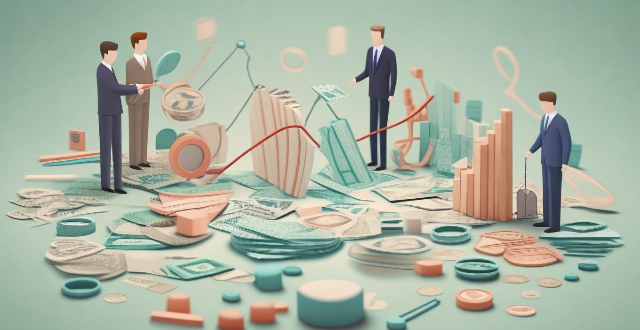
How has social distancing impacted the economy and job market ?
Social distancing measures have had a significant impact on the economy and job market, including decreased consumer spending, supply chain disruptions, high unemployment rates, increased demand for remote work, and changes in job seeking behavior.

How is the price of carbon credits determined in the carbon trading market ?
The price of carbon credits in the carbon trading market is determined by various factors, including supply and demand, regulatory policies, and market dynamics. The balance between supply and demand significantly affects the price, with high demand increasing the price and oversupply decreasing it. Regulatory policies such as cap-and-trade systems and carbon taxes also play a crucial role in setting limits on emissions and creating incentives for companies to reduce their emissions or purchase carbon credits to offset them. Market dynamics such as speculation, liquidity, and transparency can also impact the price of carbon credits. As awareness of climate change grows, the demand for carbon credits is likely to increase, driving up their price. However, ensuring transparent and efficient operation of the carbon market is essential to maximize its potential benefits for both companies and the environment.

What skills will be most valuable in the future job market ?
The future job market is rapidly evolving, driven byThe future job market is rapidly evolving, driven byization, and changing socie driven by technological advancements, globalization, and changing societal needs. As we look ahead, certain skills will become increasingly valuable to both individuals and organizations alike. Here are some of the most important skills that are likely to be in high demand in the coming years: critical thinking and problem-solving, digital literacy, adaptability and learning agility, communication and collaboration, leadership and management, ethical awareness and social responsibility. By focusing on developing these key areas, individuals can position themselves for success in the ever-evolving landscape of work.

How has the COVID-19 pandemic impacted the stock market, and what insights can be gained from this analysis ?
The COVID-19 pandemic has caused increased volatility and uncertainty in the stock market. Certain industries, such as travel and hospitality, have been negatively impacted while others, like healthcare and technology, have experienced growth. Government interventions aimed at mitigating economic effects have both stabilized markets and created long-term concerns. The rise of remote work and digital transformation has benefitted companies able to adapt quickly. As economies begin to recover with widespread vaccination, investors should monitor developments closely to make informed decisions.

Can investors be held accountable for the environmental impact of their investments ?
Investors play a crucial role in the financial ecosystem and can have significant environmental impacts through their investments. The question of whether investors should be held accountable for these impacts is complex, involving legal frameworks, ethical considerations, and market forces. Companies are legally required to adhere to environmental regulations, and investors have a fiduciary duty to act in the best interests of their beneficiaries. Sustainable investing and impact investing are becoming more popular as investors recognize the importance of considering environmental, social, and governance (ESG) factors. Consumer pressure and regulatory changes are also driving companies and investors towards more sustainable practices. Investors can take actions such as divesting from high-risk industries, engaging with management, supporting sustainable projects, and collaborating with other stakeholders to promote stronger environmental policies and practices. Ultimately, investors have a critical role in shaping our planet's future and should consider their impact on the environment when making investment decisions.

What are the economic benefits of investing in clean production technologies ?
Investing in clean production technologies can bring a range of economic benefits to businesses, governments, and society at large. These benefits include cost savings through energy efficiency, resource efficiency, reduced maintenance costs, market advantages such as enhanced brand image and access to new markets, risk mitigation from environmental regulations and resource scarcity, innovation and growth opportunities, and broader environmental and social benefits that contribute to long-term economic prosperity.

What is the role of macroeconomic indicators in stock market analysis ?
The article discusses the importance of macroeconomic indicators in stock market analysis, highlighting key indicators such as economic growth, inflation, interest rates, employment, and government policies. It suggests monitoring these indicators to identify trends and patterns that can impact the stock market, integrating this analysis with other tools for a comprehensive view.

What is the role of a broker in the stock market ?
Brokers play a key role in the stock market, acting as intermediaries between investors and financial markets. They facilitate trades, provide market information, offer investment advice, manage accounts, and execute complex trades. Their expertise helps investors make informed decisions and manage their portfolios effectively.

What is the difference between a bull and bear market ?
The main difference between a bull and bear market lies in the direction of the market trend and the overall sentiment among investors. Bull markets are characterized by rising stock prices and optimism, while bear markets are characterized by falling stock prices and pessimism.

How might a lunar base influence the global economy and job market ?
The establishment of a lunar base could significantly impact the global economy and job market by increasing investment in space technology, creating new industries, driving innovation, and fostering international collaboration. It could also create numerous job opportunities and expand educational opportunities focused on space-related disciplines.

What is the stock market and how does it work ?
The stock market is a financial ecosystem where investors can buy and sell ownership shares of publicly traded companies. Companies use it to raise capital, while investors aim to share in the company's success. Prices of stocks are determined by supply and demand, influenced by various factors including company performance, market trends, and economic conditions. The market is regulated to protect investors and maintain fairness. Investing in stocks comes with risks but also offers potential rewards, making it a popular choice for long-term investments.

How can I protect my growing wealth from market fluctuations ?
Market fluctuations are a natural part of any investment journey. However, as your wealth grows, it becomes increasingly important to implement strategies that can help protect your assets from the ups and downs of the market. Here's how you can do it: - Diversify Your Portfolio - Use Hedging Strategies - Stay Updated on Economic Indicators - Regularly Review and Rebalance Your Portfolio - Work with Financial Advisors